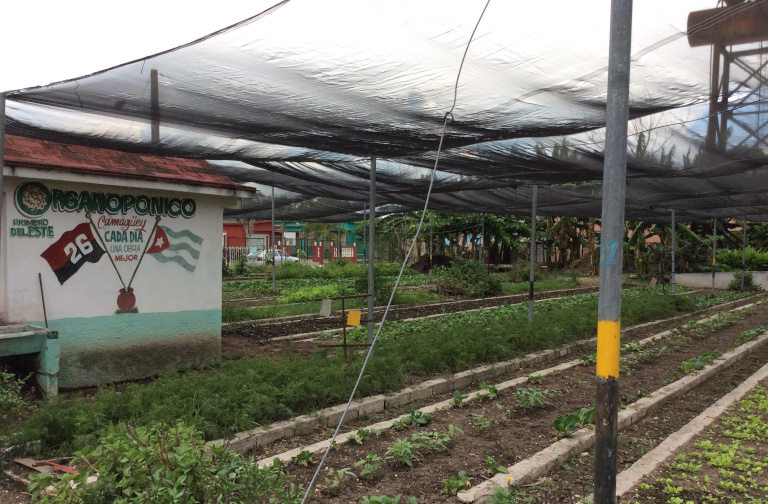Back in March, I was preparing an April Earth Day presentation to our local church (UU) congregation based on the Nate Hagens “Great Simplification” animated video series. (thegreatsimplification.com) I planned to feature a look at Cuba’s successful coping with the “great simplification” inflicted on that country in the 1990s when the collapse of the Soviet Union caused the loss of all the oil and oil products they had been getting from the Russians. Suddenly Cuba owned 90,000 Russian tractors and had no diesel fuel. Or fossil fuel-derived fertilizers or pesticides. So they were forced to “go organic.”
Then, as I was happily working up my presentation, the news came out that over 1,000 relevantly credentialed people had signed a letter urging a six-month pause in AI development. (https://futureoflife.org/open-letter/pause-giant-ai-experiments/) They said the pause was needed to work up a plan to make sure future AI systems would not pose a serious existential risk for humanity. I thought Oh my, “existential risk?” I should look into this. But I was otherwise busy and I thought this has nothing to do with Cuba.
However. Issues that came up during the Q & A time following my Earth Day show caused me to begin rethinking the Situation. I had presented the Cuban “Organic Revolution” as a good news case study, showing that even a sudden and extreme kind of great simplification can be survived. If enough people are willing to accept very different living and working conditions and pitch in to make it work. In Cuba, people from different professional backgrounds, including teachers, lawyers, and nurses, “pitched in,” becoming farmers overnight. I showed a brief PBS documentary titled “What Cuba Can Teach America about Organic Farming,” in which one Cuban farmer says “It’s really hard work. Takes a lot of love.” (https://www.pbs.org/newshour/show/cuba-can-teach-america-farming)
But some in my audience – among the best and brightest, even – balked, saying things like “I have to think there’s something wrong with this story, we all know organic farming can’t match the yield of modern industrial agriculture, so what was really going on?”
Reflecting on this objection led me to realize I had been placing too much emphasis on the Cuban food system being “organic.” The more important point was that it was local. Which our “modern industrial agriculture” is clearly not. For this reason, comparison of yields at the farm gate is not the relevant metric. What matters is food delivered to hungry mouths. The industrial system produces largely “food products” put together across global supply and distribution chains, with waste at every node and stage. Then studies consistently show that somewhere around 40% of food delivered to US households and restaurants is wasted. A mostly local and largely farm-to-table food system like Cuba’s was, is far more efficient in getting food to really hungry mouths, so it doesn’t have to match the industrial farm-gate yield.
Then, thinking about the food vs food products angle, I realized there is another important difference between Cuba’s Special Period food system and the industrial system. While the new Cuban farming (and widespread gardening) system was designed only to feed the people, the food and food products produced by the industrial system are created almost entirely by corporations whose primary purpose (by law) is not to feed hungry mouths but to make profits. Therefore, commercial breeding and cultivation practices have largely focused on maximizing profitability – especially higher yields – and not on nutrition. So no wonder USDA studies show a steady decline in nutritional quality in commercial fruits and vegetables since around 1950. (https://journals.ashs.org/hortsci/view/journals/hortsci/44/1/article-p15.xml)
But it’s not just about what’s missing in our food, but the too-often toxic additives incorporated into the highly processed food products that now make up close to two-thirds of the food consumed in the US. Largely contributing to the long list of chronic illnesses such as diabetes and hypertension that account for three-fourths of US healthcare costs. (See Nate’s podcast interview with neuroendocrinologist Robert Lustig MD. https://www.thegreatsimplification.com/episode/69-robert-lustig)
And this is the point where I began to think that something very like AI was part of this story. I had poked around the Net a bit and found one of the fears about AI was that a super-intelligent AI bot would single-mindedly pursue a supposedly beneficial programmed purpose regardless of the incidental consequences of its chosen methods. And those consequences might not benefit but seriously harm the humans among us. (https://www.youtube.com/c/robertmilesai)) So Hey, I had to realize this description pretty much fits the food corporations I was talking about, and the industry as a whole. The main difference is that programming is not by Silicon Valley techies but by the invisible mind of the market.
And of course this insight applies to just about all the components of our wonderful global tech-no-industrial social/economic system. The most well-known corporate example I guess is Exxon. They knew way back in the 1970s that one of the likely consequences of continued fossil-fueled business as usual would eventually be an uninhabitable hot-house Earth. What did they do about this prospect? Well, I think you know.
Now, looking at “AI” from the perspective of the Cuban “organic revolution,” what do I conclude? First, the computer programs with the label “AI” seem to be a subset of the more general artificial intelligence (Nate Hagens calls it the “superorganism”) that now pervasively governs our lives in the techno-industrial world. Both are very threatening. The next generation of AI programs, if the whole tech world doesn’t “pause” further development, might soon accidentally create a super-intelligent “being” totally out of human control, that might decide and find ways to kill us all. (https://time.com/6266923/ai-eliezer-yudkowsky-open-letter-not-enough/) And, unless we find ways to stop it, the Superorganism’s fossil-fueled drive to maintain ever-greater GDP might well have the same sad result.
The Cuban experience now looks to me like an even more impressive success story, showing purely human intelligence coping with a seriously life-threatening situation at nation-state scale. I know how locked into our global techno-industrial system most of us are, including in the food department for example enjoying – for the time being – getting fresh fruits and vegetables year-round, as well as the convenience of pulling “Grandma’s Chicken Casserole” out of the freezer and into the microwave and having supper’s main dish ready in 20 minutes or so. But for now and for the long run, it would seem to me to make better common human sense for us to actually choose something like a Great Simplification.
Just remember, it’s really hard work. And it takes a lot of love.
Teaser photo credit: Organopónico in Camagüey, a city in the central region of the island. By DaddyCell – Own work, CC BY-SA 4.0, https://commons.wikimedia.org/w/index.php?curid=75785348





